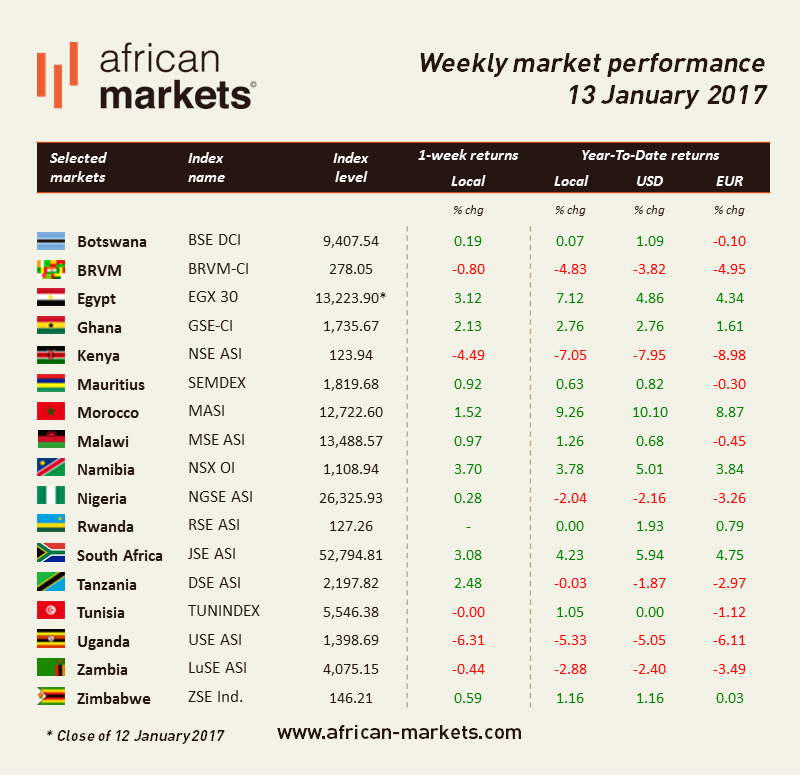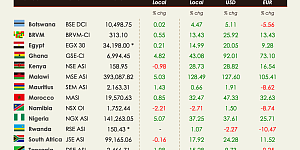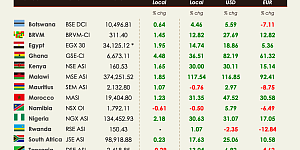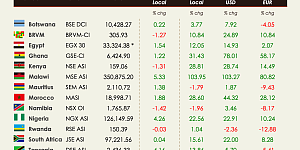It is a good week for the performance of African markets with most of the markets closing on a positive note.
For the second week of the year, the EGX30 closed higher, increasing by 3.12%. The largest EGX30 constituent CIB achieved EGP 456.4 million, ending the week higher 2.74% to EGP 75.84 per share. Moreover, foreign buying appetite is still boosting the benchmark thanks to the pound’s floatation.
The JSE ASI gained 3.08%. The index was boosted by its big industrial dual-listed shares which represent a major part of the index’s market value. These shares moved higher in line with the FTSE index in London supported by a weak pound as a large part of its constituents benefit from a weak pound.
Zimbabwe is dealing with a shortage in dollar notes. Liquidity issues are such that the central bank has had to impose a limit on cash withdrawals. Since their inception, the central bank has issued $73 million of bond-notes to help with the dollar shortage. The bond-notes have not been able to ease the liquidity squeeze. Per IMF research, the country is among the African countries with the lowest foreign exchange reserves in relation to its foreign debt. With the dollar strengthening, a low-growth economy the situation does not seem to be on the improving path just yet. This week, Zimbabwe's largest banking group CBZ Holdings has suspended the use of Visa cards for local transactions due to high costs and cash shortages. The ZSE Ind. remained firm and gained 0.59%.
The NSE ASI lost 4.49% and it is all about politics. Kenya’s President signed an Election law that opposition fears could make it possible for the ruling party to rig the next elections. The President approved amendments to the Election law which implement a manual mechanism for voter registration and transmission of the results should electronic methods bug. In other news, Kenya is seeking to raise around $1.05 bn through syndicated loans to plug its budget deficit. This would also boost the central bank foreign currency reserves and help stabilize the weakening currency.
Ivory Coast faced a two-day military mutiny unrest which ended with the President dismissing the heads of the army, police and gendarmes on Monday. The main request made by the unsatisfied soldiers involved demanding the payment of bonuses and wage increases. The rebellion of mainly former rebels now part of the army was the second such army uprising in less than three years. Just like for the previous unrest, the matter was swiftly resolved when government conceded to the low-grade military' requests and agreed to pay bonuses. Ivory Coast fundamentals have been improving over the recent years with a stable currency, sound ongoing economic reforms and a decent credit profile. The BRVM-CI lost 0.80%.










































